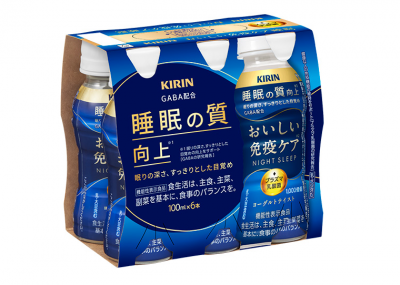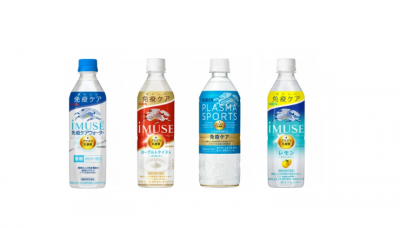Vitafoods Asia 2023
Postbiotic traction: Morinaga targets Thai market growth after FDA approval for use in foods and beverages

LAC-Shield is a heat-killed Lacticaseibacillus paracasei MCC1849 strain. As it is heat and pH stable, it could be incorporated into general food products that typically undergo high heat processing, such as bars, cereals, as well as powdered drinks.
In Japan alone, it has been used in over 1,000 dietary supplements and functional food products since it was launched in 2014.
The approval from the Thai Food and Drug Administration states that the postbiotic, under the tradename of LAC-Shield and containing non-living microorganisms, could be used as an ingredient in food products.
“This means that the postbiotic could now be used by Thai manufacturers in food and beverage applications,” Dr Chyn Boon Wong, assistant manager, marketing and scientific affairs told NutraIngredients-Asia at the Vitafoods Asia tradeshow held in Bangkok during September.
The latest findings on LAC-Shield, published in Nutrients during August, showed that individuals taking the postbiotics for 24 weeks reported a significantly lower number of days when they were down with stuffy nose and sore throat as compared to those taking the placebo.
The study involved 183 participants who were randomised to take in test powder containing either 50 billion cells of LAC-Shield or placebo once daily.
The company also received import permit from the Thai authorities for importing LAC-Shield from Japan where it is manufactured for use among Thailand’s food and beverage manufacturers.
Morinaga has been working with regulatory authorities to allow the use of its postbiotics in food and supplement products, as market understanding of postbiotics is linked to changes in the regulatory landscape, said Dr Wong.
“The regulatory landscape has been changing, which also impacts how the market perceives and allows the use of postbiotics.”
She said that several Asia-Pacific countries have become more open to the concept of postbiotics.
“Many countries in APAC are more open to [the use of] postbiotics now, and regulators are also changing their regulatory guidelines and therefore, most postbiotics companies are also trying to get registrations [for their postbiotics].
“For us, we have been putting a lot of efforts in getting our postbiotics approved in as many countries as possible. This approval in Thailand is a milestone that we have achieved.”
However, companies will need to be prepared to communicate or even educate the regulatory authorities on the concept of postbiotics – specifically, how non-living micro-organisms could produce health benefits.
“For the Thai approval, we communicated with the regulatory body to show them how even non-living organisms could provide health benefits,” she said.
Still, when it comes to consumer understanding, Japan surpasses the other APAC countries in its understanding of postbiotics use.
She said that South Korea was closely behind, since the market understanding of lactic acid bacteria was comparable to Japan.
Body fat reduction claim approved in South Korea
Elsewhere in South Korea, Morinaga is also trying to grow its presence in the weight management category – one of the largest nutraceutical categories in the country.
Dr Wong said that the firm’s probiotic strain Bifidobacterium breve B-3 was approved in March for making body fat reduction claims in the country.
This comes after its South Korean distributor concluded and published the findings of a three-month clinical trial conducted in the local Korean population to show the effects of B-3 on body weight reduction.
The findings published in Nutrients in January this year showed that supplementation of the probiotic strain for three months has shown to improve body weight and body mass index (BMI) as compared to the placebo.
“When we talk about the benefits of probiotics, gut health is probably too general, and many probiotics are already focusing on this area. Immune health is of course one of the interesting areas to go into.
“But when we think about the South Korean consumers, body fat reduction is probably much more important.”
Dr Wong explained that the strain could improve intestinal barrier, as well as producing short-chain fatty acids to improve lipid metabolism and suppress inflammation.
Other than weight management, digestive health, immunity, and cognitive health are the key focuses for the company’s probiotics business in South Korea.
“The [South Korean probiotic] market is becoming bigger. We see that the potential is there, it has become a significant market that we for sure cannot ignore and for sure will have to put more effort to gain our presence.”
The company is already offering its human-residential Bifidobacterium probiotic strains to food and supplement companies in South Korea.























